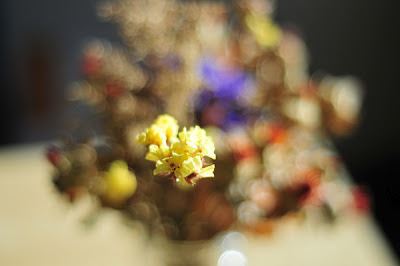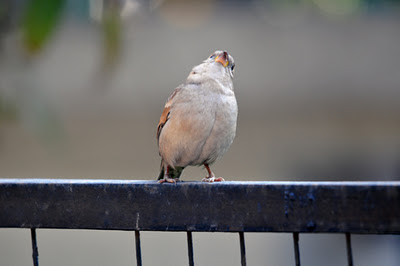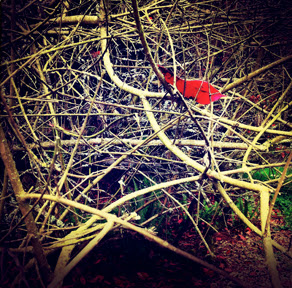-->
Some bits of advice picked up from here and there in the past year or so.
1
If you are serious about
being a writer DON’T blog.*
Though this seems to go
against the grain of what goes around as conventional wisdom these days– no truer
words have been spoken. Pause for a moment and consider how many writers
(meaning people who write books– fiction and non-fiction) have a blog. And by blog I don’t mean a website that
has excerpts of their novels, links to their interviews or lists their
scheduled public appearances, where they may sometimes write a paragraph or
more on things of interest or some other mundane matters. But has anyone heard
of a writer writing a blog to showcase, well, writing? Yes, writers do write for blogs of literary journals and magazines. But they are often published and well established writers, they get paid (that's why they do it to begin with) and not related to the issue under consideration here.
But one realizes the real
wisdom behind these words when one considers what blogging does to writing. By
that I mean the craft that goes into constructing a sentence.
As we are all strangers here
we can be honest and acknowledge the undeniable truth: Blogging makes one get
into the habit of, for want of better word, “lazy writing”. It makes writing
seem way too easy because one is bolstered by the all too empowering belief
that this is my blog and I can
write whatever I want to, howsoever I want to. It is not hard to see what this
leads to. The subject is “me” and the audience (sorry to burst the bubble) is
also “me”. And the quality of the writing meh.
Then once the blog starts
generating a certain number of hits one gets addicted, just like the seduction
of “likes” on facebook status
updates, the craving for hits leads to the inevitable– trying to replicate the success of the one post that became "popular'" or what is more fastidiously referred to as playing to
the galleries. And we all know how that story ends.
Yes, there are blogs that
have transitioned into books, mostly because they had ‘x’ number of hits per
day. A majority of the resulting books are found in the bargain section (the
one that is way back in some dark corner) at the local bookstore just months
after their release. However, there are exceptions to every rule, but in this
case very few and very hard to find.
* A distillation of all that I have read in the past year or so. Online and in books.
2
Take care of your little
notebook.*
Because your daughter may
grow up to become Diane Keaton, who on reading the 85 journals mom wrote will
write a heart-felt and moving memoir.
-->
That isn't reason enough?
Then I present *Charles Simic's essay in NY review of books: “If one has the urge to write down a complete thought, a handsome
notebook gives it more class. Even a scrap of paper and a stub of a pencil are
more preferable for philosophizing…”
I only refer to what the
reviews says of Diane Keaton’s memoir ‘Then Again’. I have only read a few pages
while browsing away the afternoon at the neighbourhood bookstore, as the
building was conducting its annual fire-safety drill. It fell into my hands because
after 3 hours of picking up a book at random and reading a random page I was
not focusing; I didn’t even know where I was, let alone what I was doing.
3
Not focusing can free the
imagination.
But To Do lists, especially
if they belong to Leonardo da Vinci, are worth more than their weight in gold.
It is useful,"
Leonardo wrote, to "constantly observe, note, and consider."*
He filled over 13,000 pages
with his observations and drawings that range from grocery lists and household
expenses to compositions of paintings to detailed anatomical drawing and
engineering inventions. He seamlessly glided from one topic to another often
within a single page
It seems he could not focus on a single thread of thought. By not giving his complete undivided attention
to one thing he was able to pursue everything, so to speak. Or conversely, he could focus on one thing so completely and so exclusively to all the rest that he could carry more than one thought in his head. His knowledge was
not limited by fields or boundaries. That made him a genius.
*Robert Krulwich, in this piece, asks us to join him in slipping into Leonardo’s mind for a moment. How
will we do that? All credit to learning number 2: Leonardo’s well taken care of
notebooks.
4
Read Darwin, Marx, Joyce,
Freud, Einstein, Benjamin, McLuhan, and Barthes.*
Curiosity. Across
disciplines. About many things. About any and everything. That my friends, is
not just the code that opens the gates to the world inhabited by Leonardo da Vinci, or the world of
creativity in general but also the code that opens the secret pathway to a life well
lived.
* Charles H. Traub, The
Education of a Photographer
5
The future is not uniformly
distributed.*
Thanksgiving weekend brought
up a host of images of deprivation from around the world with the tagline, “Consider how blessed you are. Be grateful. Walk a mile in their shoes” or
something to the effect. My first thought: People who can barely walk tall in their own shoes
should not even consider trying to walk in other people's shoes. Especially, if
they have no idea to whom the shoes in the photograph belong.
It also reminded me of Good Will
Hunting (again). The scene in which Sean MacGuire (Robin Williams) says to Will
(Matt Damon),
You're an orphan, right?
Do you think I'd know the first thing about how hard your life has been, how
you feel, who you are because I read Oliver Twist? Does that encapsulate you?
Books too aren’t of much help
beyond a point. No, you can’t understand anyone unless you begin with trying to
make sense of yourself.
In any case, you can spend an
entire life without having a clue about yourself or the world in general. It is
not just plausible, but possible. And as far as I can tell what many believe the short cut to a
life well lived.
But there are always those
who want to know.
Kurt Vonnegut said: Be
careful what you pretend to be because you are what you pretend to be. So that gives us someplace to begin this journey of
trying to discover ourselves.
But if you are able to make
sense of what you are and who you want to be and you realize that it is
something that no one else ever was or wants to be. Take heart. For the future is not uniformly
distributed. There is space for multiple stories, each with their own specific
plot lines and unique endings.
What an uplifting and
liberating thought! The future is not uniformly distributed. Everything is possible.
All at the same time.
* From an interview with Tom
Waits in The Guardian. Oh! Yes, I do consider him a sort of modern day prophet.
New Learnings round one can be found here.
































































